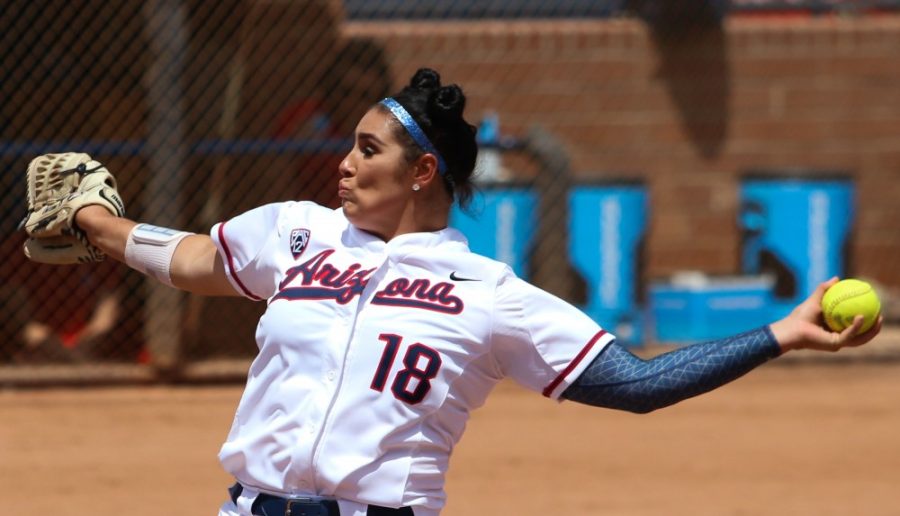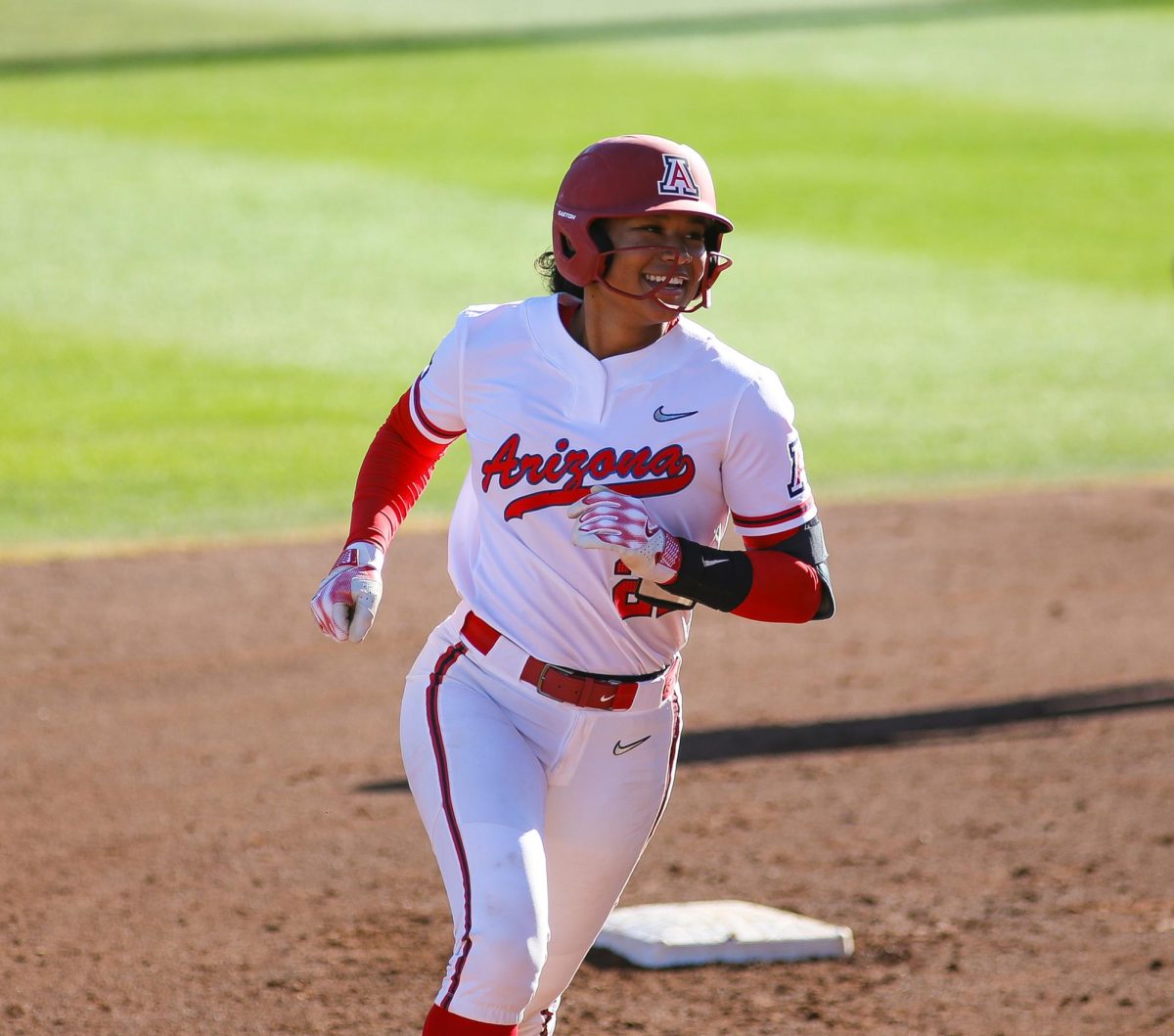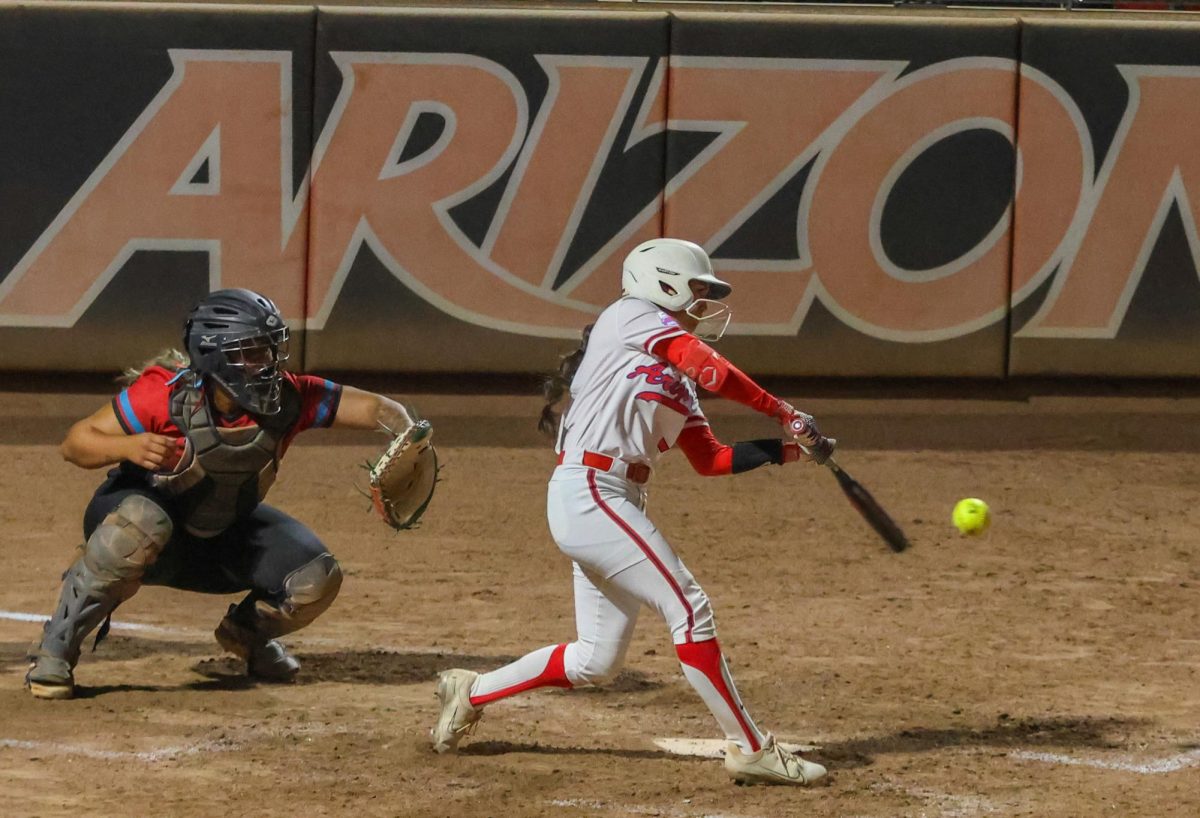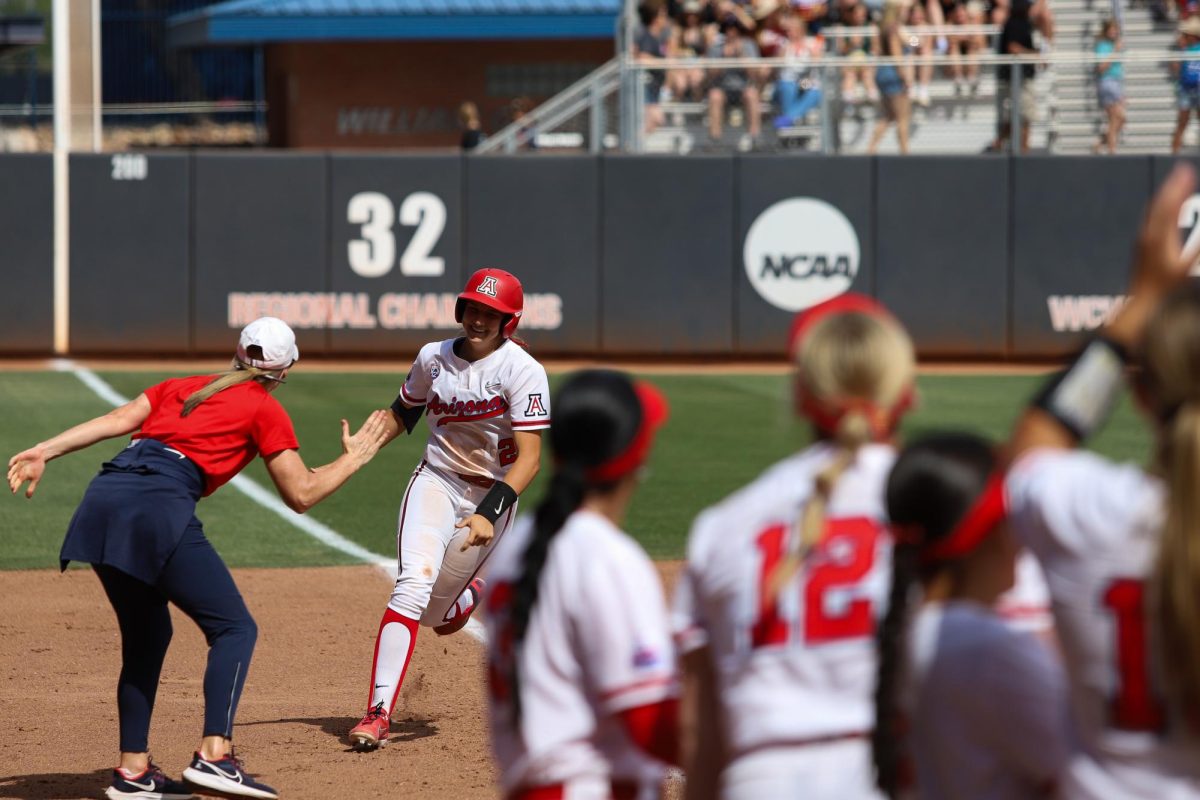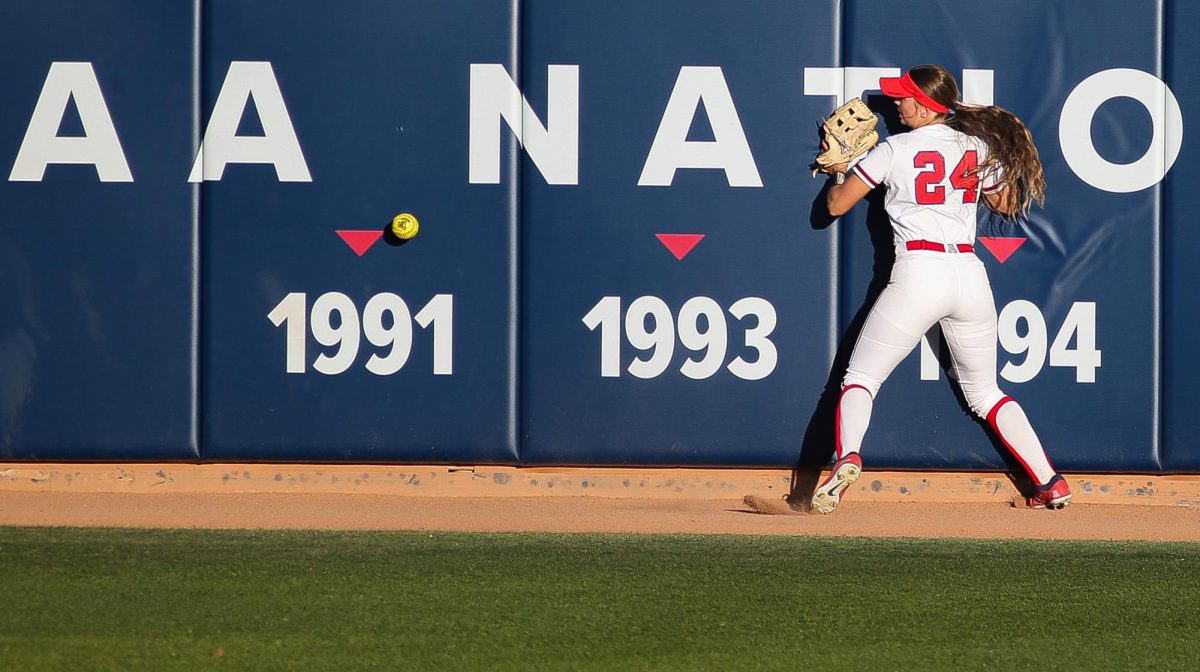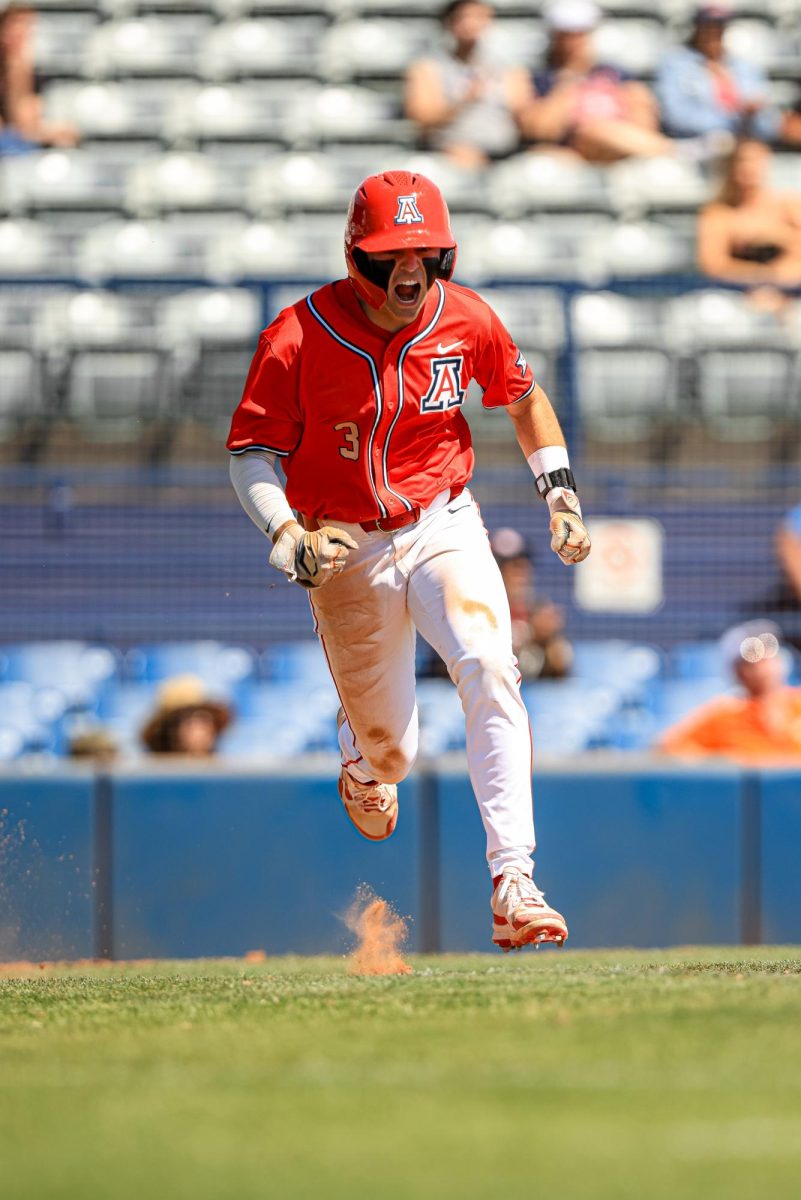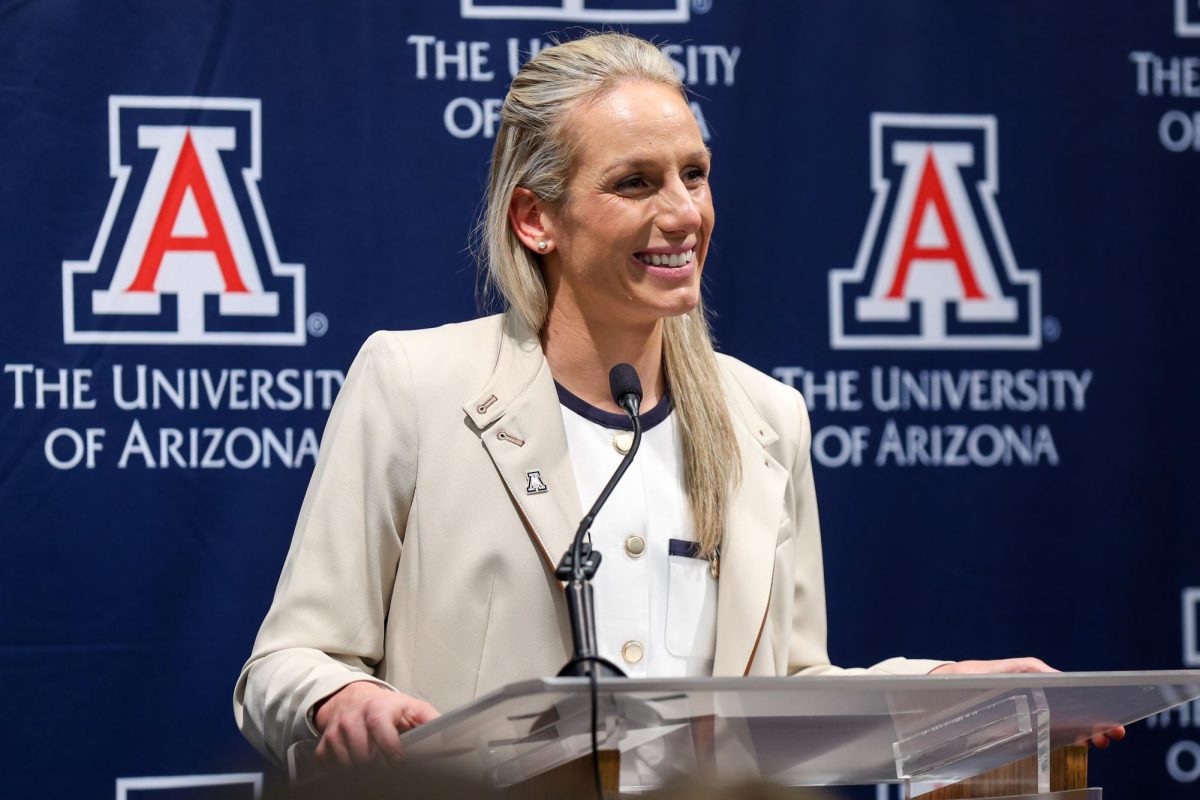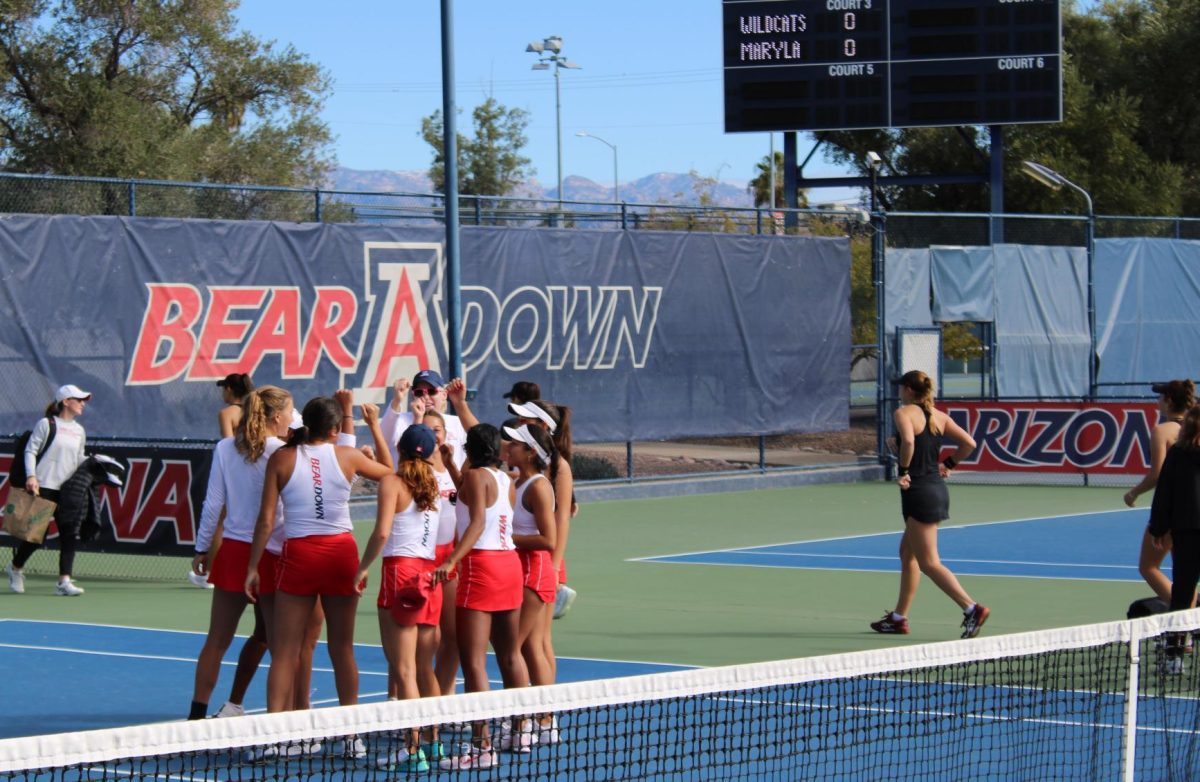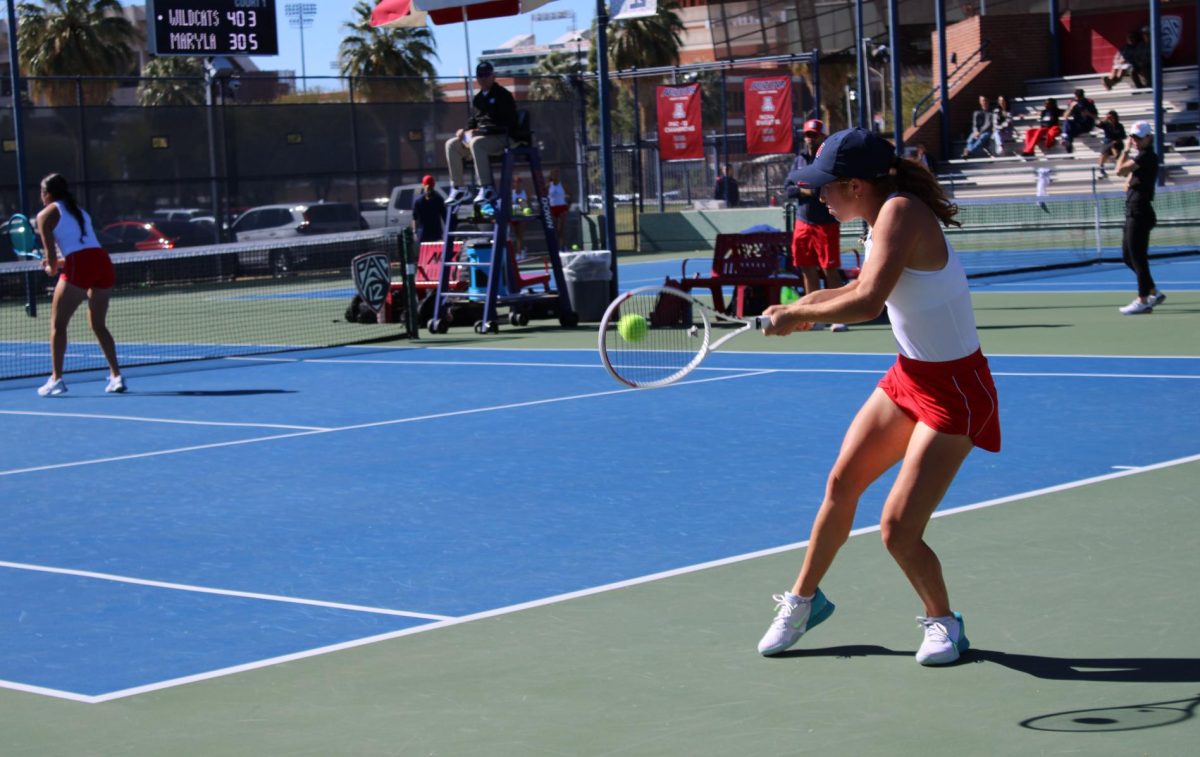Taylor McQuillin is not only the Arizona Wildcat’s best softball pitcher, but her numbers show she ranks as one of the best pitchers in the country. What opposing batters might not know is that she’s also blind in one eye and deaf in one ear — but don’t call it a disability.
McQuillin was born with Duane syndrome. Duane syndrome is a birth defect that limits the movement of her left eye and ear. Because of this, McQuillin’s early childhood was full of surgery and operations to try to fix her eye and ear.
“I had five (eye) surgeries from the time when I was born to age 5. I had three surgeries on my ear drums, and I got my tonsils and adenoids taken out when I was 6,” McQuillin said. “But within that time, I couldn’t see completely out of my left eye as I could in the right eye. So, as I got older, I pretty much had to learn how to do everything being able to see out of one eye.”
McQuillin’s first two surgeries went wrong, and made her eyesight worse.
“I got a staph infection in the hospital, and then the other three after that were to try to repair what had gone wrong,” McQuillin said. “It just never really got any better, so we left it for what it was.”
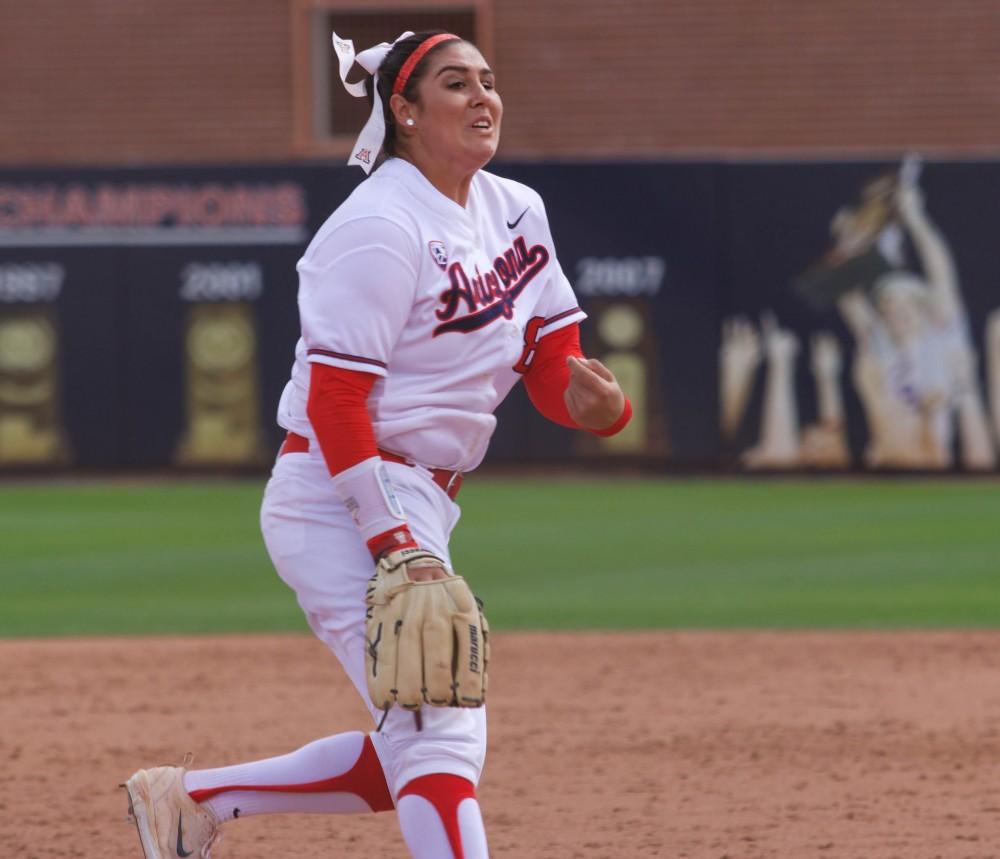
However, McQuillin doesn’t see herself as disabled, even though some people may choose to label her as such. That’s because she’s never known anything else, so seeing out of only one eye is normal to her. While growing up, McQuillin said she never had any trouble socially because of her eye.
“I had friends that I like to say were pretty great to me. But people didn’t really know what it was, so they would just ask,” McQuillin said. “Most of the questions I would get were like, ‘Oh, like, your eye moves in a different direction, and can I ask why?’ People were very nice about it. Nobody ever really picked on me for it.”
Being only able to see out of one eye was a concern for her parents when McQuillin wanted to start playing sports.
“My parents were really apprehensive to put me into sports and kind of anything that had to do with hand-eye coordination, and stuff like that, because they really didn’t know how I’d react with it,” McQuillin said.
The fears of her parents were never shared by McQuillin, who said she was never scared by her lack of sight. That fearless philosophy and determination helped her parents realize that sports were something McQuillin truly wanted to pursue.
“I did swimming, soccer, taekwondo, dance, softball. They kind of threw me out there at anything and everything just to kind of see what I liked – to see if I could actually do it,” McQuillin said. “I think that their self-doubt kind of went away after they realized, ‘our five, six-year-old daughter isn’t scared to go out and do this stuff, so we can’t be scared for her.’”
Now, as a junior softball player at one of the most prestigious programs in the country, McQuillin has a few obstacles that she needs to overcome, primarily her depth perception.
“Depth perception is a little weird. And I know that’s weird because I’m a pitcher and I’m the closest person to the ball besides the catcher at release,” McQuillin said. “You kind of have to shift a little bit.”
McQuillin said she can’t see anything on the left side of the field when she’s in the circle. But since she’s been dealing with it since she started playing, the junior has figured how to make the proper adjustment.
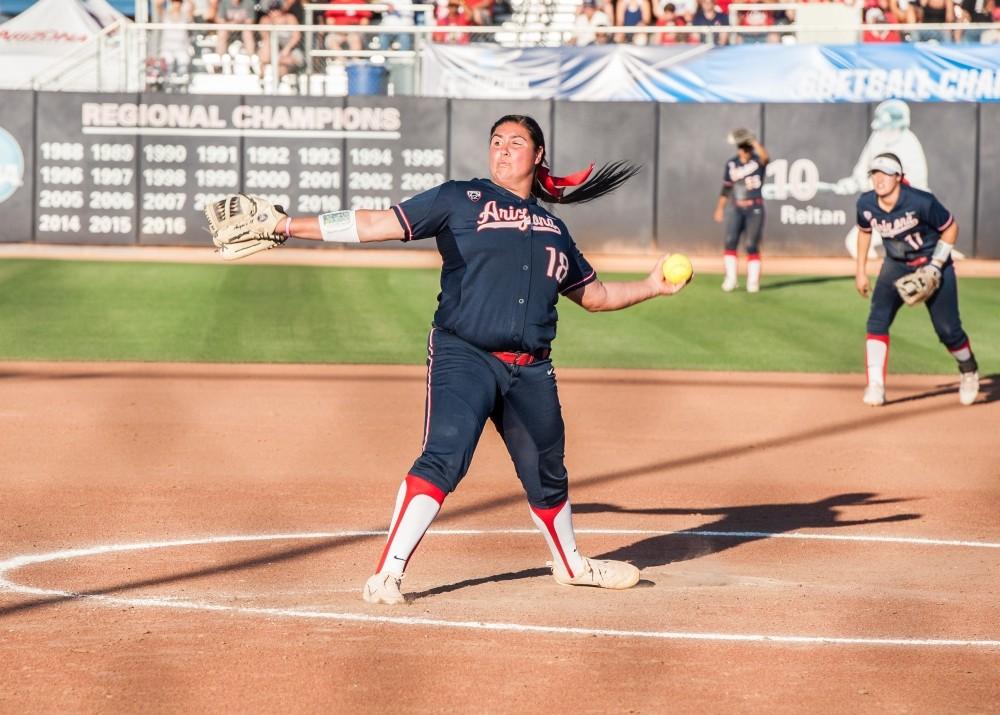
“Anything hit to the second baseman, I have to turn my entire body to see or anything coming in from the right side of the field,” McQuillin said.
The biggest thing for McQuillin is that she wants her story to be a point of inspiration to others who were born with a defect or a disability.
“It’s your type of normal, so you gotta go out there and live. But I don’t want anybody to feel like they have to be afraid to go out and try something new, or go out and play sports because it’s different for them,” McQuillin said. “There are so many stories of people who have it a lot worse than me.”
McQuillin said she gets inspired by others who deal with disability struggles at a young age and hopes that people will not let it define them.
“I think you should go out there and embrace it — use it as part of who you are. Get your story out there. Create your book of life,” McQuillin said. “Don’t be afraid to go out there and do anything that you want to do. If you set your mind to it, you can do it.”
Follow Max Cohen on Twitter



